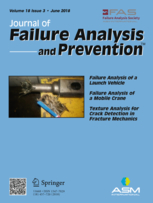 When a researcher submitted a manuscript to a journal about multimedia tools, she was frustrated to wait 13 months for the journal to make a decision — only to have it reject the paper outright. So imagine how she felt when, days after the paper was rejected, she saw the journal had published a plagiarized version of the paper by a group of different authors.
When a researcher submitted a manuscript to a journal about multimedia tools, she was frustrated to wait 13 months for the journal to make a decision — only to have it reject the paper outright. So imagine how she felt when, days after the paper was rejected, she saw the journal had published a plagiarized version of the paper by a group of different authors.
Clearly, something went very awry here — especially since the journal, Multimedia Tools and Applications (MTAP), has retracted three papers by the same group of authors, all of which plagiarized from unpublished manuscripts by other people.
Of course, one possibility is that an author was a peer reviewer of the manuscripts, and stole the unpublished material — something that unfortunately does happen.
There are four authors in common to all three manuscripts, but only one — corresponding author Chao Xiong of the Changzhou Institute of Technology in China — has responded to any queries from MTAP, according to the retraction notices. As the notices state, Xiong agrees with one of the the retractions, but not the other two. (All of the papers cover similar topics and were submitted around the same time, so it’s unclear why Xiong didn’t object to one retraction.)
Here’s a sample notice, for “Image-based reversible data hiding algorithm toward big multimedia data:”
Continue reading A journal waited 13 months to reject a submission. Days later, it published a plagiarized version by different authors
 Irony machine, start your engine: A pair of engineers have lost a 2017 paper in the Journal of Failure Analysis and Prevention over a failure to determine who owned the data.
Irony machine, start your engine: A pair of engineers have lost a 2017 paper in the Journal of Failure Analysis and Prevention over a failure to determine who owned the data.  For the second time in a week, we’ve come across a retraction notice that gave the wrong reason for the retraction.
For the second time in a week, we’ve come across a retraction notice that gave the wrong reason for the retraction. The authors of a 2018 paper on how noisy distractions disrupt memory are retracting the article after finding a flaw in their study.
The authors of a 2018 paper on how noisy distractions disrupt memory are retracting the article after finding a flaw in their study.  When a researcher submitted a manuscript to a journal about multimedia tools, she was frustrated to wait 13 months for the journal to make a decision — only to have it reject the paper outright. So imagine how she felt when, days after the paper was rejected, she saw the journal had published a plagiarized version of the paper by a group of different authors.
When a researcher submitted a manuscript to a journal about multimedia tools, she was frustrated to wait 13 months for the journal to make a decision — only to have it reject the paper outright. So imagine how she felt when, days after the paper was rejected, she saw the journal had published a plagiarized version of the paper by a group of different authors. The
The 
